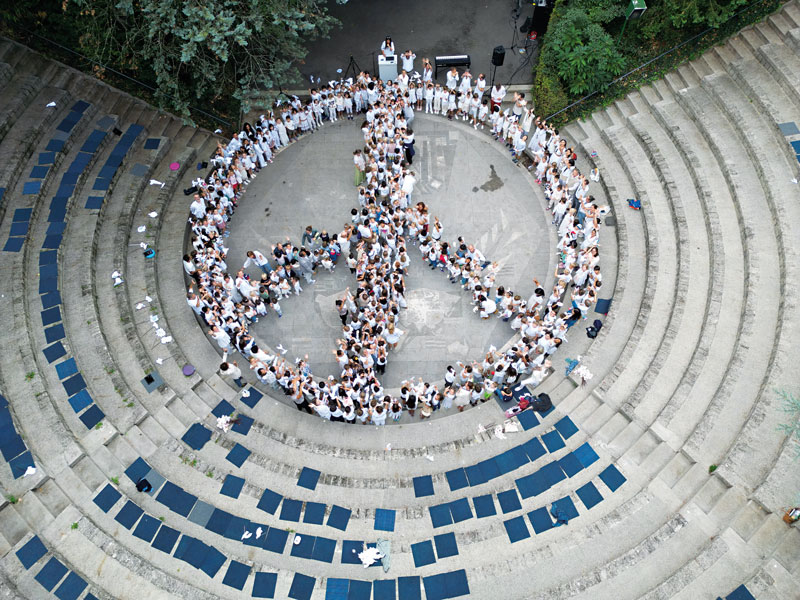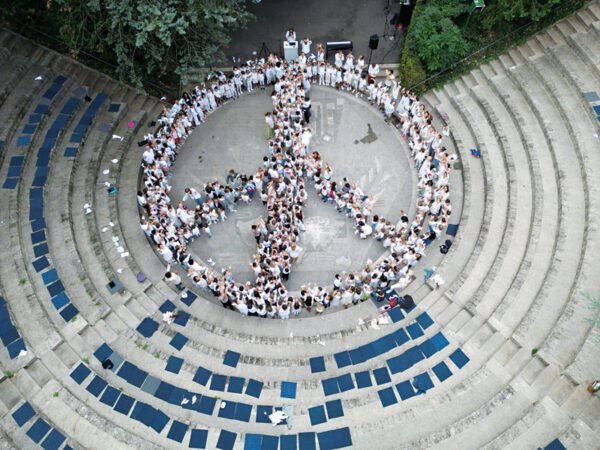
& nbsp
Author: Conrad Hughes, Managing Director, Geneva International School
One of the most difficult practice problems that teachers are confronted in schools is how to discuss burning political events, including war. This is particularly delicate in international schools, such as the International Ecole de Genève, where many nationalities are represented in the community, sometimes on the part of the very war. There is a temptation to avoid any mention of sensitive events, because schools are not political entities. However, decades of research on prevention of prejudices and violence through education remind us that students must have a space to discuss what they feel. The problem for teachers is how to scaffold such discussions.
Three principles, three strategies
In 2020, I directed the publication of a UNESCO study entitled “to prevent violent extremism by education: from policy to practice”, with contributions from curriculum experts, psychologists and philosophers. Based on what has come out of this work, I would like to suggest three principles and strategies that educators can consider.
The first principle is that everyone is safe here. Wars create fear, anxiety and distress but also scapegoats, intimidation and ostracism. It is the first duty of educators to know their students and the extent to which they could be affected by a conflict. No teasing behavior, accusation or discriminatory is never acceptable, but this message must be reinforced in wartime. We must openly approach children in the affected areas and check if they are good. There should be a plan in place so that traumatized children know where to go if the burden becomes too much.
The first strategy is therefore to create a safe space. Ask students how they are, in class and individually. Pay attention to their mood and behavior and give them a chance to express what they feel.
Use school resources, including psychologists and advisers, to create a program to support students in distress.
Search for truth
The second principle is critical thinking. The first victim of the war is the truth: propaganda abounds and the chaotic and not filtered world of social media desensitizes users and nourishes them with the ideologically conflict biases. It is difficult to know what to trust and how to forge an opinion, and that is why students must be presented to a criterion of empirical meaning.
The teacher’s work is to educate students to think, not to tell them what to think
Therefore, the second strategy is to check your bias and bring students to check theirs. Ask yourself what are your hypotheses and how you project them, unconsciously or consciously, on how you chair discussions and present documents. The teacher’s work is to educate students how to think, not to tell them what to think. For their part, students must always wonder what their sources of information are.
The third principle concerns moral imperatives of higher order. The teacher’s work is finally to conduct the discussion at a more general level and transferable to other situations.
Thus, the third strategy is to take discussions at this higher level. This allows students to leave the lesson with powerful syntheses or “big titles” of a philosophical nature. This also means to close discussions above the confusion of heated positions and move to a place of agreement. Sometimes we cannot end with a universal understanding, but rather a persistent universal question.
Skills development
To help teachers in this aspect of their work, we offer a new course at the Ecolint Institute for Learning and Education entitled “Teaching in time of conflict”. This online workshop has a session in person to a session provides educators various practical strategies. Delivered through presentations led by experts and animated escape sessions, the course covers the presentation of impartial information, supporting the emotional well-being of students, answering stimulating questions from students and reflecting on these practices. Participants will leave with a certificate of completion of the Ecolint Institute, recognizing their participation and their development of skills.
The need to take care of the students and colleagues affected by the war is of capital importance. But to avoid the discussion of global events will not help students to become critical and attentive thinkers. Hence the challenge we face as a educators. One thing is certain, if we do not organize these discussions, social media will do it for us and that will not provide the support necessary to maintain citizens around the world.
